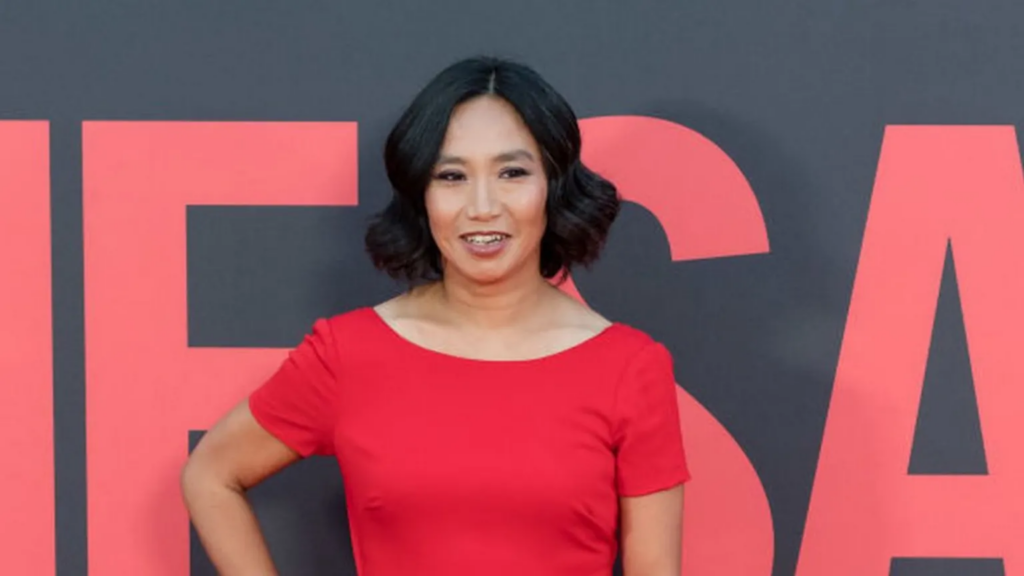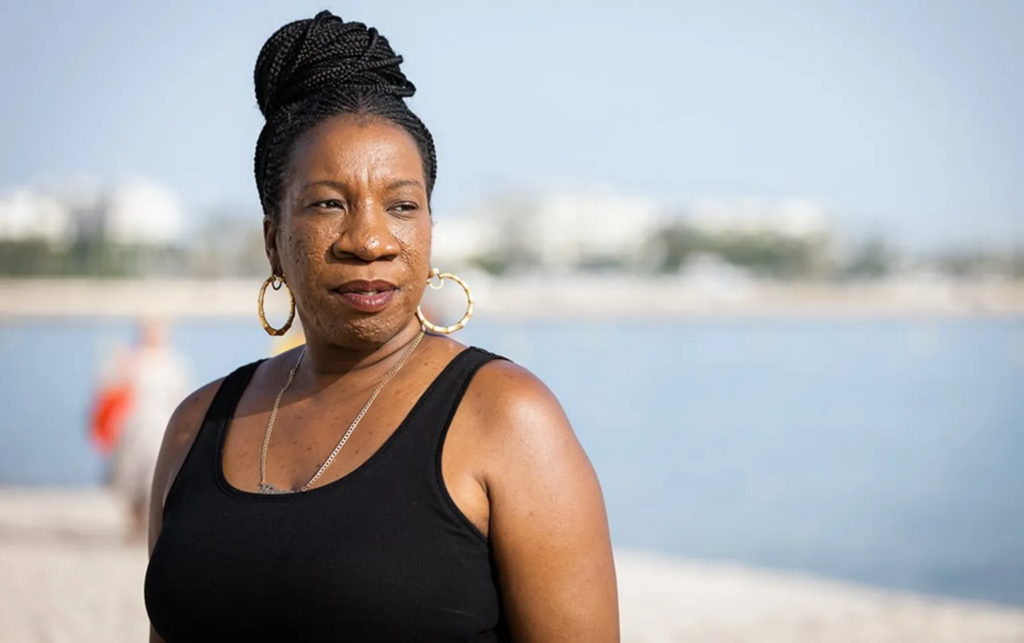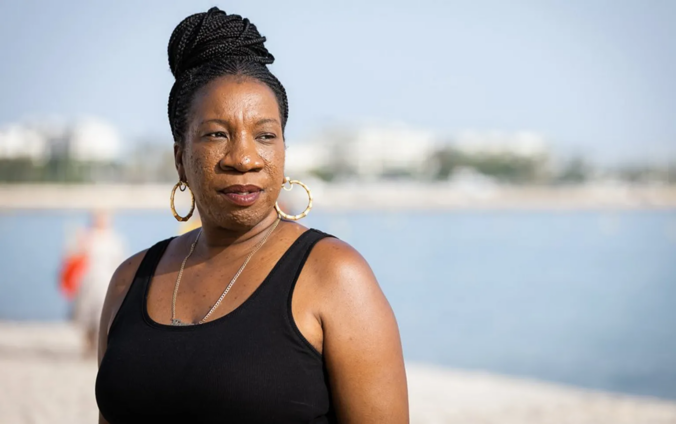"This is not a blow to the movement," MeToo founder Tarana Burke stated defiantly as she responded to the overturning of Harvey Weinstein's 2020 rape conviction in New York.
"It is a clarion call and we are prepared to answer that call," she proclaimed.
Her rallying call came after a New York Court of Appeals ruled that Weinstein, once one of Hollywood's most successful and influential producers, had not received a fair trial back in 2020 because prosecutors called witnesses whose accusations were not part of the charges against him.
The consequence: the judges ordered Weinstein face a new trial.
Arthur Aidala, the movie mogul's lawyer, hailed the decision as a "victory for every criminal defendant in the state of New York".
He added: "There are still people who are very unpopular in our society, but we still have to apply the law fairly to them at that trial. The law was not applied fairly to Harvey Weinstein."
Weinstein's New York trial was pivotal for the MeToo movement, the campaign against sexual abuse which went viral online after several women came forward alleging that he had sexually abused them.
Weinstein has always maintained his innocence and his defence team said at the time of the New York trial that sex between the movie executive and accusers was consensual.
Ms Burke, an activist who works with survivors of sexual violence, began using the phrase "Me Too" in 2006 to raise awareness of women who had been abused.
Eleven years later, it found global recognition after actress Alyssa Milano, one of those who accused Weinstein of sexual assault, used the phrase in a viral tweet.
"We are devastated for the survivors who are connected to this case and the survivors who had found some solace and catharsis in the original verdict around Harvey Weinstein," Ms Burke said.
"Many people, many survivors and those who love and support survivors probably thought that original verdict meant that there was going to be a change, that it marked a change and marked a difference in how this justice system was going to move and operate," she explained.

But she added that "this moment, and this decision, actually means that we have a movement", emphasising that much progress has still been made.
"Ten years ago, we could not get a man like Harvey Weinstein into a courtroom," she said.
Rowena Chiu said she was sexually assaulted by Weinstein in a hotel room in Venice in 1998 when she was his personal assistant. She initially signed an non-disclosure agreement but later went public with her story.
Speaking to BBC Radio 4's Woman's Hour on Friday, Ms Chiu said: "I'm encouraged by what people have said, that this should be a clarion call."
"I myself have said the work is only just beginning."
But she added that the overturning of the New York verdict does "very much feel like a leap back."
Ms Chiu said it was already the case that it was "incredibly difficult" to be successful when bringing a sexual assault case. "But these verdicts were glimmers of hope in centuries of darkness for women's rights."
"Today is not going to be a day that will encourage [survivors] to change that situation."
Ms Chiu hopes the overturning of the New York rape conviction will result in a call for legal reform and a change to how secondary witnesses are allowed to be used in New York in future.
Others, however, are of the view that the court ruling should be respected to ensure that everyone is treated fairly.
For Ms Burke, however, the MeToo movement is about more than Harvey Weinstein.
Speaking at a red carpet event on Thursday, the MeToo founder told the Associated Press news agency: "One singular man getting away with it" doesn't mean that a world free of sexual violence is something that can't be realised.
"So I'm not worried about one singular man. I'm worried about what our judicial system's going to do, what our culture's going to do - what are we going to do?"
Ms Burke has previously spoken about how celebrity cases of sexual abuse should not be seen as the only marker of the MeToo movement's success.
Seeing which "celebrity goes to jail or not is not sustainable as a movement", she told the BBC in 2020 following Weinstein's (now-overturned) conviction.
Rather, she said, victory for the movement should be measured by focusing on the wellbeing of survivors.
Weinstein, 72, remains in prison. He was separately convicted of rape in Los Angeles in 2022.
Before the allegations against him emerged, the producer and his brother Bob were among Hollywood's ultimate power players.

They co-founded Miramax Films, a distribution company named after their mother Miriam and father Max, in 1979. It was sold to Disney in 1993.
Their hits included 1998's Shakespeare in Love, for which Weinstein shared a best-picture Oscar. Over the years, Weinstein's films received more than 300 Oscar nominations and 81 statuettes.
Latest Stories
-
Trump’s travel ban strains US-Africa relations
9 minutes -
UGBS, MIG, ASoE partner to equip students with leadership skills
25 minutes -
Bank of Ghana directs banks to review pricing model for customers
39 minutes -
BoG says 2024 financial year saw improved performance despite loss
50 minutes -
Private sector eager, prepared to work with the government to boost production – GNCCI
1 hour -
Trade Minister spotlights Ghana’s entrepreneurial progress in the USA
1 hour -
Cedi’s sharp appreciation may undermine gains from upcoming cocoa price hike – COCOBOD
1 hour -
Ghana advances sustainable e-waste practices
1 hour -
Fuel Levy a betrayal after fare reduction – GPRTU accuses government
1 hour -
Plastic Industry cautions against hasty styrofoam ban
2 hours -
We will adhere to zero financing of budget – BoG
2 hours -
Greater Accra: Ambulance shortage forces dispatchers to prioritise only critical cases
2 hours -
The ecological situation is dire and we need robust action – Awula Serwah
2 hours -
Trump and Musk trade insults as row erupts in public view
2 hours -
Scholarship with Professionalism: Nurturing career-ready graduates at UPSA
2 hours

